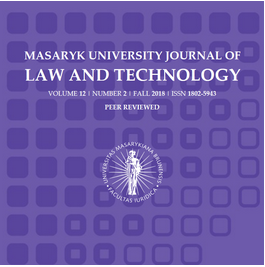Is Intellectual Property Sacred?
Is Intellectual Property Sacred?
Author(s): Adrian MihalacheSubject(s): Civil Law, Socio-Economic Research, Philosophy of Law
Published by: Masarykova univerzita nakladatelství
Summary/Abstract: Philosophers, ideologists or mere intellectual guru’s have considered property from radically opposed standpoints. For some, like Adam Smith or Thomas Jefferson, property was sacred, for others, like Rousseau or Marx, it was merely a theft that lies at the origin of inequality and exploitation. In the information age, one is more interested in intellectual property than in the tangible one, e.g. real estate. As soon as one makes the distinction between intellectual and tangible property, one notices that the most ancient traditions treat them quite differently. The Old Testament implies that tangible property is sacred, taken into account that the Promised Land was granted by God himself to his people of choice. Moreover, in modern times, the early American pioneers regarded the New World as a continent which Providence has given to them (Mihalache 2005: p. 106). Conversely, the Greek Mythology narrates that the secret of fire-making was stolen by Prometheus from the Gods, which was clearly a case of patent infringement.
Journal: Masaryk University Journal of Law and Technology
- Issue Year: 1/2007
- Issue No: 1
- Page Range: 81-96
- Page Count: 16
- Language: English

